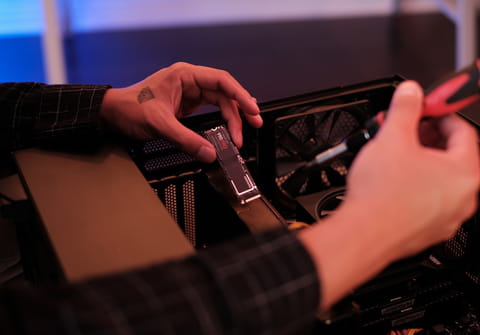How to assemble a PC: a guide for beginners

A PC is a modular computer that can be assembled using hardware components made by different manufacturers. This allows you to have a custom-built computer that matches your specific needs. This article will explain to you the elements involved in assembling a PC.
How to build a computer?
The following components are necessary when building a computer:
- The casing.
- The motherboard.
- The processor.
- The RAM modules.
- The storage drives.
- Expansion cards.
The metal casing houses the internal components of the computer. It usually comes with its power supply and a set of screws, connectors, and cables.
The processor is the computer's main integrated circuit and is known as the true brain of the computer, performing all of the main calculations.
Storage devices, such as hard drives, CD-ROM, and DVD-ROM drives and burners, as well as the floppy disk drive, make it possible to store information on your PC.
Expansion cards are used to upgrade computer functionality and performance.
The motherboard is a large printed circuit board that connects the processor, RAM, hard drives, CD/DVD drives, and expansion cards. It comes with its own set of riser connectors.

Prior to assembly, you must carefully consult your motherboard manual to be able to identify the different connectors.
 |
All instructions given here are quite simple, but one single error (e.g. a wrongly aligned connector) may cause irreparable damage to the hardware. This guide serves as an aid that should only be used as a reference. Therefore CCM.net will not be held responsible for any damages caused by improper use.
For all instructions given here, you must make sure that the PC power supply is unplugged from the mains, then ensure any static electricity is removed by touching the metal case of the computer with one hand and touching the ground with the other. |

